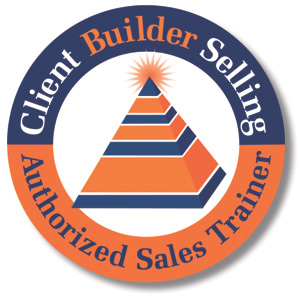 Choosing a sales trainer for yourself or your company is an important decision. The trainer you choose means the difference between obtaining meaningful results or simply paying for high-priced, corporate entertainment. There are two critical components to this decision: the message and the messenger. The message is the methodology used by the sales trainer. The messenger is the sales trainer himself. Both of them have to be right.
Choosing a sales trainer for yourself or your company is an important decision. The trainer you choose means the difference between obtaining meaningful results or simply paying for high-priced, corporate entertainment. There are two critical components to this decision: the message and the messenger. The message is the methodology used by the sales trainer. The messenger is the sales trainer himself. Both of them have to be right.
The following article, written by Tom Freese of Question Based Selling, does a great job of summarizing the essential elements of how to choose a sales trainer. Sometimes articles like this are self-serving. It’s easy for a company, or in this case, a sales trainer, to choose the criteria that makes himself look good. Therefore, we thought it might make more sense if we chose someone else’s criteria for making this decision. Of course, based on Tom’s criteria we think we stack up pretty well against our competition. Here is what Tom Freese has to say on the topic:
Choosing the right sales methodology for your company is critically important. So is choosing the right sales trainer. But there aren’t a lot of Consumer Reports articles on how to make a good choice. Therefore, allow me to offer you a couple quick tips on what to look for, as well as some hard questions you should definitely ask potential trainers.
The first thing to look for in a sales trainer is how they sell themselves. What are they doing when they approach their own clients and customers? This is not as simple as just asking for a resume or references. Remember, everyone looks good on paper! Instead, you want to get a sense of their personal philosophy toward selling. Sales trainers have to market their services to prospective clients, just like you, and how they approach the sales process themselves should give you a good indication of what they will be teaching your salespeople.
For example, when you interview a potential sales trainer, start off by saying, “Tell me about your sales development programs.” Then, sit back and listen carefully to how they respond. If their answer takes the form of a standard elevator pitch, where they start by claiming to have a wealth of knowledge and experience, followed by a dissertation about all the “wonderful” benefits their programs offer, you should run as fast as you can in the other direction.
I know from practical experience that there is nothing a sales trainer can say about themselves or their material that, in the first few minutes of a conversation, will sound dramatically different than what every other sales trainer claims. Everyone touts their ability to help clients penetrate accounts, uncover needs, close more sales, and blah…blah…blah. Let me remind you, if a salesperson sounds just like everyone else, then they forfeit their competitive advantage. Do you want a trainer who commoditizes their own value proposition teaching your salespeople how to sell?
A good salesperson communicates their value against the backdrop of what’s important to the client, rather than just spewing benefit statements. Therefore, you would want a sales trainer to respond with a quiet confidence, saying: “Mr. Customer, I would be happy to tell you about the sales development programs we offer.” Then, you want them to ask, “Would it be OK if I asked a couple specific questions about your sales organization, to better understand your objectives in terms of sales development?” I find that most clients are actually relieved when I ask specific questions about their sales organization, because they want sales training to be tailored around their specific needs.
The next question you should ask a prospective trainer is: “What makes your material different from other sales training programs?” Again, if the goal is to have a competitive advantage in the marketplace, you don’t want more of the same old, same old. You want something that will give your sales team a measurable advantage. Therefore, if a sales trainer is truly able to offer a unique solution, they should be able to articulate what makes their material different from other sales training courses. Don’t be surprised if this question is difficult for sales trainers to answer, which makes it even more important to know if what you are getting is truly different, or just more of the same.
The goal of these interviews is not to put sales trainers on the defensive by asking difficult questions. The goal is to a have a better sense of what you are actually buying, so you can avoid a potential mistake. Think about it like this: If you don’t have a clear understanding (in advance) of what specifically is different about a certain sales training program, then you should be very worried.
Ironically, a great many sales trainer “types” hang their hat on career longevity. “We have trained thousands of salespeople over the last fifteen or twenty years,” they say. While I agree that experience is generally a good thing, so is adapting to changes in the marketplace. Therefore, when you hear these claims, be sure to ask, “What (specifically) in your approach has changed over the last fifteen or twenty years?”
Refuse to accept an ambiguous answer on this one. If their material has indeed evolved over time, a trainer should be able to cite specific examples of how their approach has been updated to adjust to changing market conditions. Ironically, I have found that most of the brand-name sales training courses are still teaching the same basic theories about selling as when I took them many years ago. Now, it’s up to you to decide whether you believe the selling environment for your industry has changed over time, or stayed pretty much the same. In my view, the business climate has changed dramatically, and managers need to be very cognizant with regard to what gives their sales team the best advantage moving forward.In addition to differentiating their training programs, an effective sales trainer should also be able to articulate specific techniques and strategies that will provide an immediate boost in productivity. Sales managers want results. Therefore, if we’re honest about it, what happens during the actual course is somewhat irrelevant. The key to increasing productivity is a function of what happens when participants go back out into their respective territories and put the concepts they learned into practice.
Be persistent on this issue too. What (specifically) will your salespeople learn that will provide an immediate impact on results? It’s a fair question. With what’s at stake, you cannot accept a vague response like, “We provide a cohesive set of paradigms that empower sales professionals to…blah, blah, blah.” That’s great, but philosophical generalities don’t increase productivity! Get clarity on what someone is planning to teach your salespeople and how it will impact their performance immediately after the training.
Like I said earlier, we think we stack up pretty well against our competition. Don’t be afraid to challenge us. We pride ourselves on practicing what we preach.


